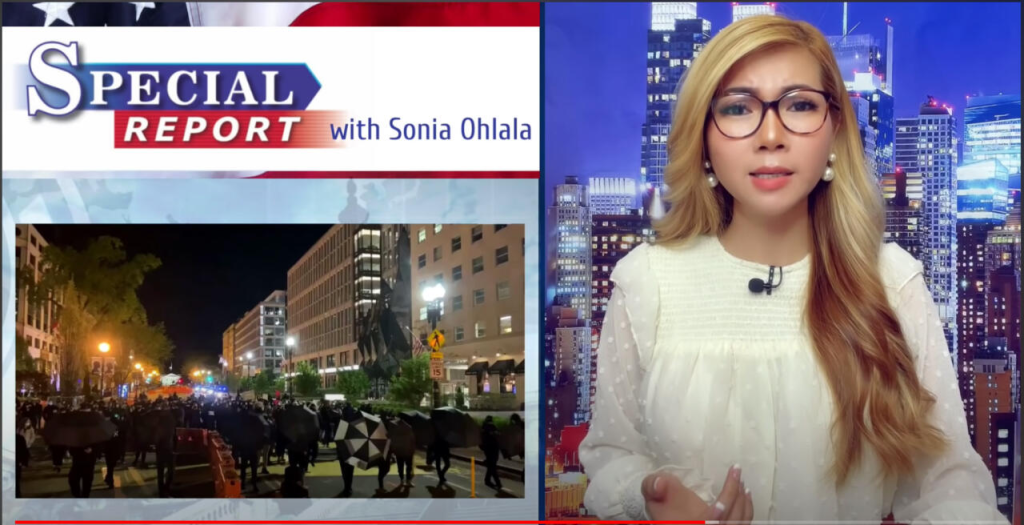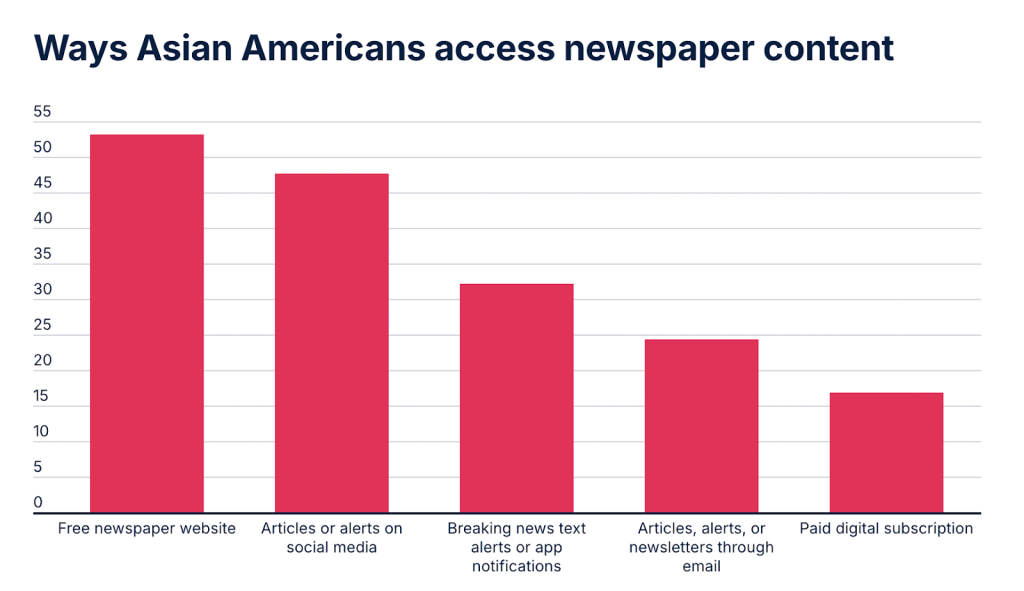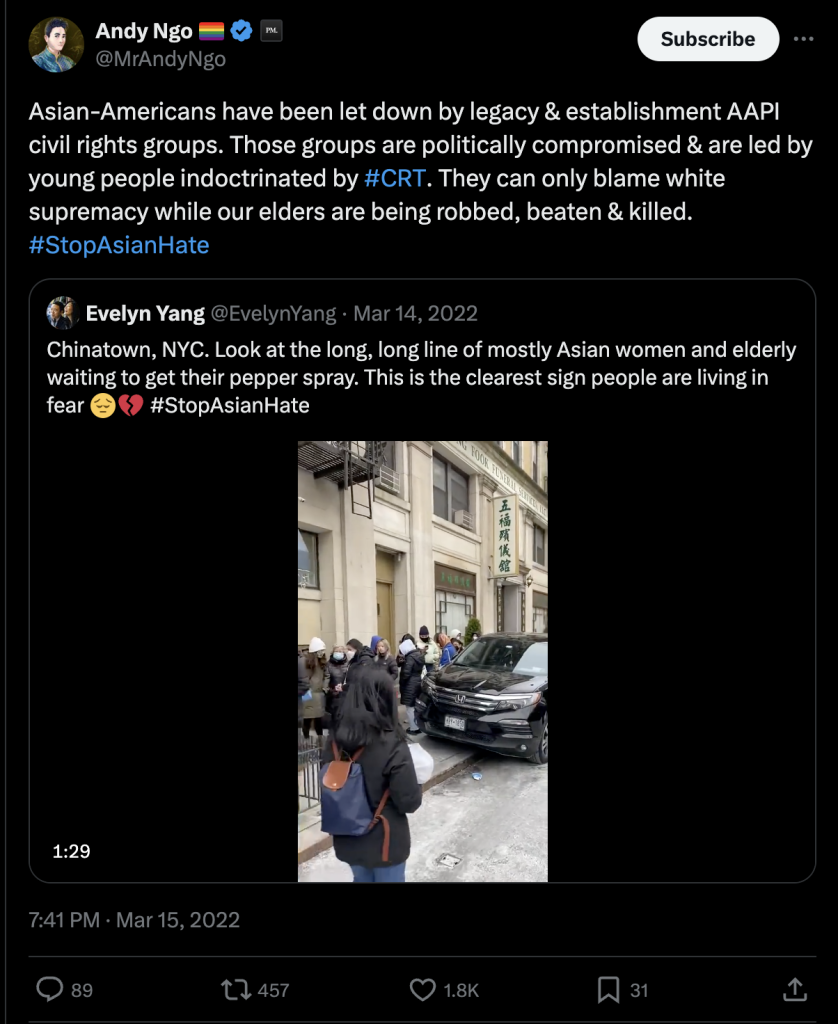
Our project is supported by the USA’s National Science Foundation and Luminate.
Asian Americans, composed of roughly 15 million eligible voters, are poised to play a pivotal role in the upcoming 2024 U.S. elections. At the national level, the Asian American electorate is getting increased attention; Asian Americans are now the fastest-growing group of eligible voters in the country. At the local level, important state elections in California, Iowa, New York, and Texas feature Asian American political candidates.
As host of the Asian American Digital Politics project, the GloTech Lab at UMass Amherst is launching a blog series titled Asian American Digital Politics Monitor to discuss national issues, local electoral races, and campaign controversies relevant to Asian American communities. We will also report on specific misinformation narratives and wedge issues targeting diverse segments of Asian American voters. This project is a part of GloTech’s mission to seek resilience and healing, and aims to identify harmful narratives in order to understand how we can mend the Asian American community.
Our project is supported by the USA’s National Science Foundation and Luminate.
Contributor: Yelim Lee, GloTech Graduate Fellow
There’s a growing social media ecosystem that caters to Asian American conservatives. Leading the charge are conservative pundits like Sonia Ohlala and Andy Ngo, whose posts and videos on X and YouTube discuss topics such as American politics and “culture wars” from an Asian American conservative angle. However, these two pundits are vastly different in appeal and strategy. Ohlala is a macro-level influencer who works on YouTube to bring Vietnamese language content to a pro-Trump Vietnamese audience, while Ngo is a mega influencer whose reach is more mainstream and multi-platform. Despite their differences, both of these pundits appeal to the fast-growing political bloc of Asian American communities by creating emotional bonds with their audiences through shared historical and cultural references and filling an information void.
Through a comparative study of the social media content produced by both influencers, this blog post examines the dissimilar yet effective strategies these pundits employ to work the different layers of the informal news ecology that serves conservative Asian American audiences.
Sonia Ohlala is a Vietnamese YouTuber with, as of September 2024, 208k subscribers. Her videos feature regular updates on former President Donald Trump and American politics for conservative Vietnamese audiences craving Vietnamese language content otherwise not available in mainstream news outlets. Using collage format in her video thumbnails, it is striking how much Donald Trump’s photo is included across her many YouTube videos.

Most of Ohlala’s videos begin with her standing in front of the green screen where she delivers her near-daily updates about the former president, in an entertainment news format reminiscent of a fan diary. In one video, she says, “I have a beautiful image of President Trump at his election campaign in Virginia.” She maintains a hyper-feminine appearance with her flowing locks and modest dress, sometimes wearing what appears to be a fashionable áo dài, the traditional garb worn by Vietnamese women. Her modest appearance, ability to speak Vietnamese, and warm tone are meant to position her as a relatable and virtuous Vietnamese American woman.
Her videos cycle through several topics, including what she describes as the lacking performance of the “Democratic Communist Party” in the most recent presidential debate. This isn’t the first time Ohlala has invoked the name of Communism in response to any opposition Trump faces. In one of her community posts, she criticizes the ‘evil communist regime’ in New York for demanding a record of Trump’s fingerprints during his second federal arraignment. Time and time again, Ohlala reflects and speaks to a shared trauma and reproach for Communism within the Vietnamese community to influence her viewers’ political attitudes toward Trump and the Democratic Party. Additionally, Ohlala reports on issues or events specific to her Vietnamese community’s interests—once again, filling an important information void—such as Trump’s endorsement of Hung Cao, a Vietnamese Republican candidate running for senator in Virginia.

Ohlala’s viewers are among the 51% of Vietnamese Americans who reported that YouTube is part of their regular news repertoire. Vietnamese Americans are not the only demographic that consumes news from alternative media sources rather than from national news outlets. A recent Pew Research Center survey found that American adults from 18 to 29 years of age are just as likely to trust information they receive from social media sites as they are from national news outlets. Additionally, the 2024 Nielsen media consumption and trust survey discovered that AAPI (Asian American Pacific Islander) audiences are more likely than the general U.S. population to turn to social media and online aggregators for their news.
To Asian Americans, who are often erased from mainstream U.S. news, social media sites and social circles can be more appealing sources of information. When one considers that around half (49%) of Asian immigrants have limited English language capacity, political pundits like Sonia Ohlala fill an important language void. Ohlala represents that trusted community member who can digest the fast-flowing news ecology of American politics and translate issues into something more relevant to viewers’ cultural context. Though Ohlala’s videos include disinformation translated directly from alt-right, hyperpartisan sites like “The Gateway Pundit,” she remains an important source of information for the Vietnamese immigrant community who can’t easily access or understand English-speaking political news.


Another example of an Asian American pundit is Andy Ngo, who has 1.4 million subscribers on X and delivers English-language content to a broader Asian American demographic. As senior editor at The Post Millennial (an online conservative Canadian news site) and a regular guest on Fox News, Ngo is much more firmly established within the American conservative media ecosystem than Ohlala is. Ngo’s tone and presentation reflect his prominence in mainstream news ecology. His tweets use more professional or intellectual language, and he positions himself as somewhat of a freedom fighter (to liberate the country from the radical left). His work on Antifa’s radical actions (“Antifa promises violence”) and cultural Marxism on university campuses (“Universities too often serve as “hate-crime hoax” mills”) have brought him much attention and infamy, and some left media outlets have accused Ngo of being a right-wing grifter.
Though he may seem similar to other mainstream conservative commentators like Ben Shapiro, Ngo stands out for his ability to bring attention to conservative Asian American talking points and issues. For example, Ngo posits that the #StopAsianHate campaign is a leftist tactic to quash Asian support for Trump. “Ask yourself why “Stop Asian Hate” doesn’t care to mobilize around this,” he says provocatively, when he retweets Asian American journalist Dion Lim’s report on an assault against 13 elderly Asians in an assisted living home. The implied answer, of course, is that the perpetrator is Black. In another tweet, Ngo posts a graphic video of a Black man assaulting and robbing two Asian women. Though around 75% of perpetrators in anti-Asian crimes are white and male in incidents where the perpetrator’s identity is known, Ngo’s viewers would find it hard to refute Black-on-Asian violence when faced with blue-mottled bruises in the resulting pictures and videos. “They can only blame white supremacy while our elders are being robbed, beaten & killed,” he says, drawing on his Asian heritage when he mentions ‘our elders.’ It’s a call to action for his Asian American readers and followers to take action and protect the community.

Similarly, Ngo makes an emotional appeal to a shared Asian American heritage when he tweets the racism he experienced at the hand of a migrant encampment in Dublin, Ireland. He stated that ‘smartphone-carrying migrants’ shouted “Go back to China!” at him. Afterwards, Ngo reported that two Irishmen were found dead in a canal near the camp, connecting racism to violence and murder. Though individually Ngo’s tweets tap into conservative fears of violent, welfare-stealing immigrants, the appeal to a shared experience of racial trauma adds an extra layer of credence to such fears.
The Asian American Disinformation Table’s 2022 landscape report noted that a documented lack of focus on issues that matter to the Asian American community has led viewers to eschew national media news channels in favor of more informal platforms that cater to their interests. While Asian American voters are invested in many electoral issues, rising anti-Asian hate is a key concern that may drive political engagement. Asian American voters have a heightened awareness of and sensitivity to racial violence and discrimination that make them more responsive to candidates and policies that address these issues directly. Creators like Sonia Ohlala and Andy Ngo fill an information void in national media coverage with news distinctly colored with a targeted Asian American focus, acknowledging a demographic underserved by mainstream media. The strategies employed by these influencers could play a pivotal role in setting expectations of what this swelling group of eligible voters should expect from national and local candidates.
